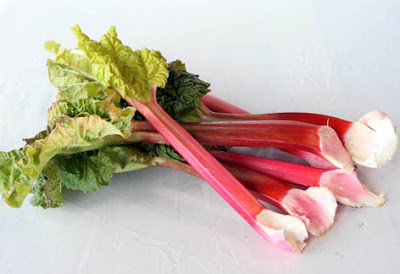Disturbing news from the pages of i, the cut-down version of The Independent, published especially for readers with little time and less money. (Here at Dixon Towers we are so part of that demographic).
Steady your nerves before reading on. For it would appear that the UK rhubarb harvest is under threat, and likely to be a poor one this year.
Not because of a plague of rhubarb weevils, much less from a virulent infestation of the dreaded stalk mould. Because those are both made up diseases.
No, it’s the mild British winter that’s to blame. The noble rhubarb originally hails from Russia (heaven alone knows how it ended up here) and needs a short, sharp shock of Siberian-style frost to energise its roots and bring its stems to peak, pink perfection ready for scrunching in the spring.
Specialist Yorkshire rhubarb growers are already predicting shortages, and this is reflected at our allotment, where Mrs D’s single specimen has never really got going.
(Although this may be connected with the fact that said specimen took more than a year to reach us, and looked decidedly limp and sorry for itself when it did eventually flop through the letterbox. Britain’s mail order rhubarb industry still has much to learn.)
Rhubarb’s a funny sort of food, though. It has an identity crisis about whether it’s a fruit or a vegetable: a bit like the tomato only the other way round. It has a close affinity with pizza (they’re both one of your five a day), and of course everyone knows that the stalks are edible but the leaves are poisonous.
But how do we know that, exactly? In the dim and distant imperial Russian past, did some poor peasant from the banks of the Volga sit down to a salad of tasty-looking rhubarb leaves, only to succumb in agony?
Did Peter the Great’s food taster nervously sample a chunk of boiled pink stem and live to tell the tale?
And did some predecessor of today’s oligarchs establish the first rhubarb trade between Russia and England, later buying up a football team here, a newspaper there?
Probably not, but it does bring us back – more by coincidence than design – to The Independent.
According to i, growers in the Netherlands have come up with a solution to original horticultural problem – lack of cold – that involves shocking the rhubarb roots into action by treating them with a liberal dose of acid.
Now, it’s undoubtedly the case that the Dutch have a much more relaxed attitude to recreational drugs than we do on this side of the North Sea, but this is taking things a bit too far.
All right, it’s not that kind of acid, and rhubarb produced using these dodgy foreign tricks certainly doesn’t come out psychedelic. It actually comes out paler and with less flavour than the traditionally grown stuff from the candle-lit forcing sheds of the Yorkshire Rhubarb Triangle. (Not made up).
So, if you want a proper stick of tangy, vibrant pink British rhubarb to whisk into a fool or bake in a crumble over the next few months, then you may find yourself paying a little a bit extra for it.
But it’ll be worth every penny.


No comments:
Post a Comment